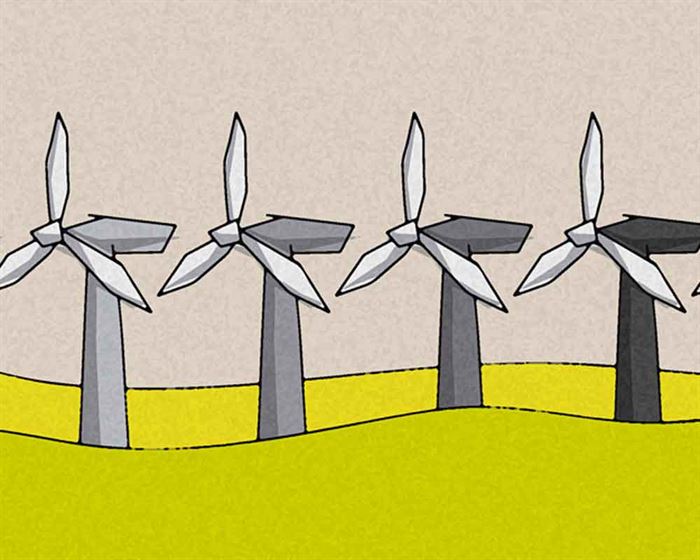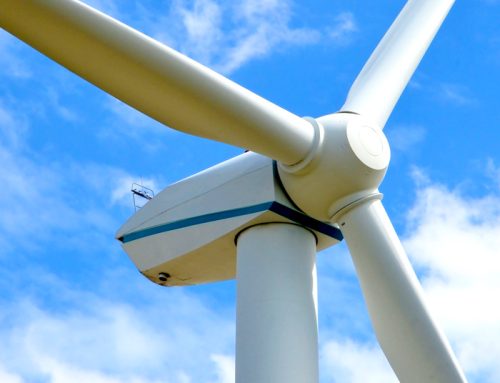Why are so many in the UK opposed to offshore and onshore wind farms?
14/12/2016
Tiempo de lectura: 4 minutos
The UK is currently the global leader for wind energy. Despite this, there is still much opposition to the expansion of wind farms and the wind farms currently in use. Wind farms are often described as an eyesore that ruins the British countryside and causes a decline in tourism. Many newspapers have claimed that wind turbines have effects on the health of communities living near them. While, some environmental groups argue that wind turbines have an adverse impact on the environment.
The UK is currently home to more than 24 offshore wind farm containing over 1000 turbines. Wind energy is one of the go-to forms of renewable energy in the UK due to the UKs windy climate and ability to develop farms in the North Sea. Although wind power is unreliable regarding constant wind, it only requires period patience, unlike other power stations and outlets. This means that wind power can only be used in terms periods, and times of the year. Technology has also made turbines extremely durable to cope with extreme weather.
The main opposition to wind farms in the UK is that many believe the to be an eyesore that destroys the British countryside. Many UK residents have a “not in my backyard” view wind turbines, supporting them as a renewable source of energy but not wanting them within site of their homes or general area. However, wind turbines are a less prominent eyesore than other power plants including renewable energy plants. Wind energy has been harnessed for centuries by the use of windmills, which throughout Holland have been described as majestic.
Many are concerned about the health effects that communities have noticed when living near wind farms. The turbines used on wind farms create a low-frequency noise which the wind sector claims can not be heard by human ears. Despite this, many complaint’s of tinnitus (ringing in the ears) and sleep problems mean that although the sound might not be noticeable heard it is picked up by the human brain. Although some studies have been done into this, they are inconclusive, meaning more research into the effects of wind turbine noise on neighbouring communities should be done. However, this does mean that wind turbines are perfectly safe as long as they are built over 200km away from communities (as found by studies undertaken).
Some claim that wind turbines within site of communities reduce housing prices and have the possibility to increase taxes. However, this claim applies to any power station or outlet built near communities. Other plants such as nuclear or fossil fuels would be a bigger eyesore and would have many more health effects on communities.
One other opposition to wind farms is the belief that it has more negative impacts on the environment than positive. This is due to some deforestation to build the turbines. The turbines have also caused a significant number of bbird and bat deaths in recent years. This could be due to the low-frequency noise which most likely can be heard by birds and bats. Many other wind farm sites have had similar issues including a location in Arizona which has experienced a significant number of deaths in endangered and rare birds. Two places in Spain have also had many problems with bird deaths. The RSPCB have commented on this situation stating that more research needs to be done on proposed wind farm sites. They believe that these deaths are not due to wind farms in general but due to poor siting.
The building of wind turbines has also claimed to be an issue with the environment. The construction of wind turbines can be disruptive to above and below ground animals creating problems with foraging and the habitat in general. This complaint, however, is more typical of onshore farms. There have been some similar environmental complaints about offshore wind farms; however, some evidence suggests that molasses and fish populations have risen as the turbines acting as an artificial reef. Despite this, there have also been claims that the building work for the turbines have caused more issues disrupting all forms of sea life.
Overall as with any energy generation, there are disadvantages to using wind turbines to create energy. There are however little health effects if the correct procedure is followed when building the turbines. This means not building near towns and villages. More research should also be done into the site’s turbines are built on to have as little environmental effect as possible. When it comes to the idea of wind turbines destroying British scenery and countryside, wind turbines as much less unsightly than a nuclear or fossil fuel power plant.








